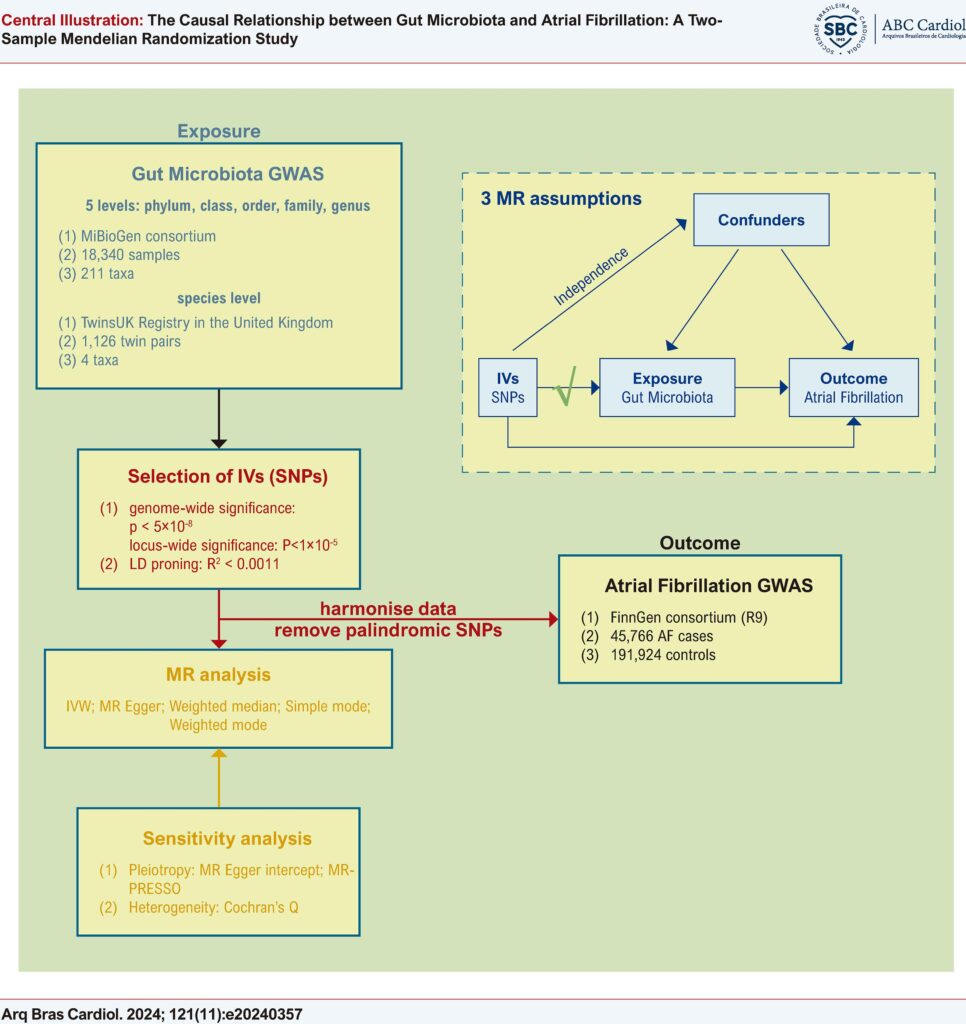Arq. Bras. Cardiol. 2024; 121(11): e20240357
The Causal Relationship between Gut Microbiota and Atrial Fibrillation: A Two-Sample Mendelian Randomization Study
This Original Article is referred by the Short Editorial "Mendelian Randomization in Atrial Fibrillation".
Abstract
Background
Previous studies have adequately characterized the gut microbiota (GM) in atrial fibrillation (AF). Nevertheless, the precise causality between GM and AF remains elusive.
Objectives
This study utilized public data from genome-wide association studies to explore the causality between GM and AF.
Methods
In the first of two rounds of Mendelian randomization (MR) analysis, the instrumental variables (IVs) comprised single nucleotide polymorphisms (SNPs) that fell below the genome-wide statistical significance threshold (5 × 10-8). To attain a more comprehensive and inclusive conclusion, we further selected SNPs falling below the locus-wide significance level (1 × 10-5) as IVs for the second group. The MR analysis considered the statistically significant causal effect between the specific GM and AF when p < 0.05. Furthermore, in sensitivity analysis, p > 0.05 indicated no heterogeneity and pleiotropy.
Results
At the locus-wide significance threshold, the findings demonstrated a causal impact of GM on AF risk. The inverse variance weighting method indicated that Actinobacteria, Firmicutes, Alloprevotella, Bifidobacterium, Blautia, Eggerthella, Howardella, Ruminococcaceae UCG004, and Ruminococcus1 were negatively correlated with AF, while Pasteurellales, Pasteurellaceae, Oxalobacter, Ruminiclostridium5, and Turicibacter were positively correlated. Furthermore, at the genome-wide significance threshold, Actinobacteria, Bifidobacteriaceae, and Bifidobacterium were protective factors for the risk of developing AF, whereas Oxalobacteraceae and Erysipelatoclostridium were risk factors for AF. However, sensitivity analyses showed heterogeneity or horizontal pleiotropy within the outcomes for Actinobacteria, Howardella, Oxalobacter, and Firmicutes.
Conclusions
This study provides evidence for the existence of both favorable and unfavorable causality of GM on AF risk.
283

